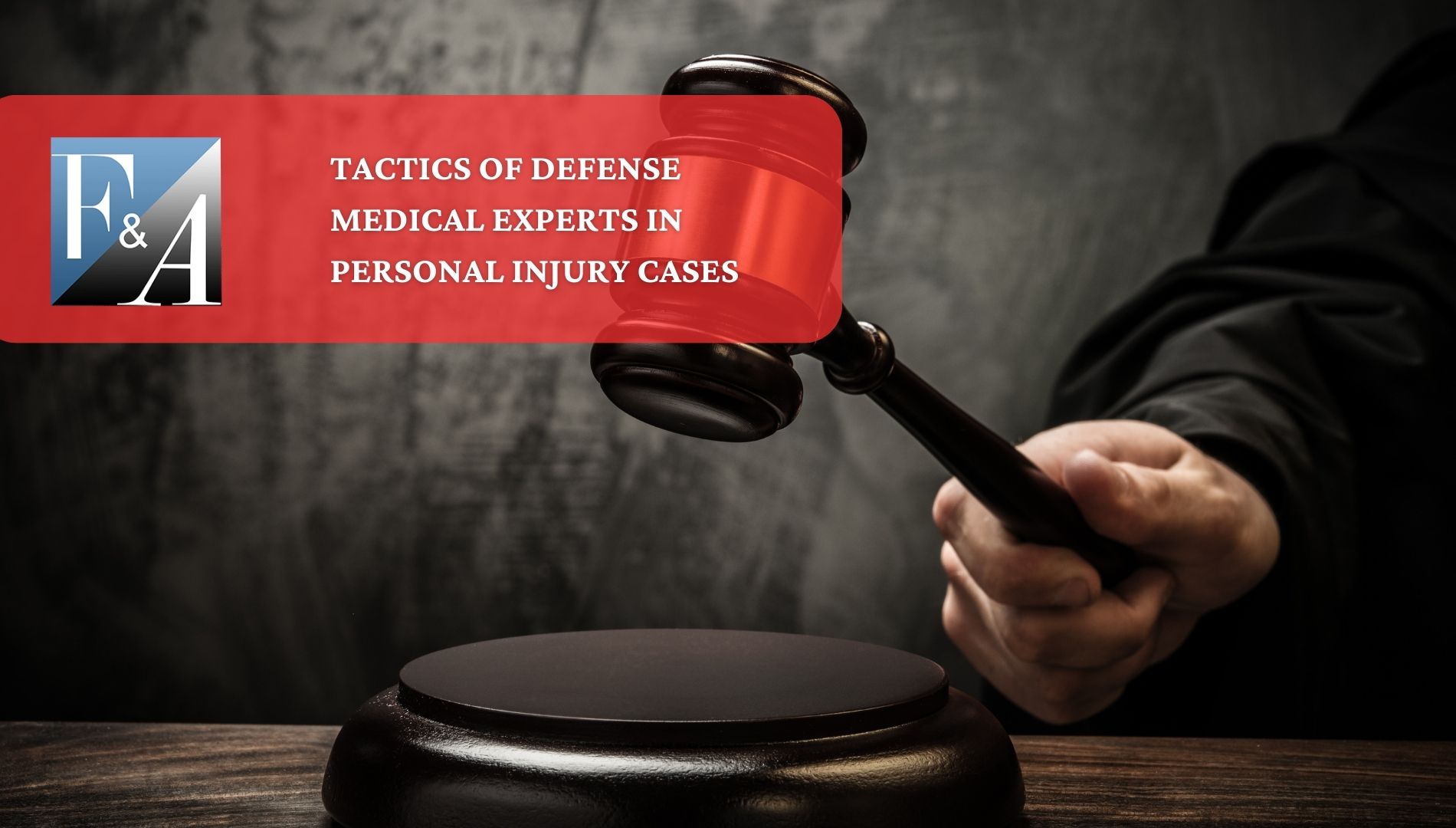Unveiling the Tactics of Defense Medical Experts in Personal Injury Cases

Key Takeaways: Understanding Defense Strategies in Injury Litigation
| Key Aspect | Details |
|---|---|
| Defense Tactics | Use of ‘independent’ medical examiners who often don’t review patient films or reports before forming opinions. |
| Legal Process | Requirement of a 311d expert exchange in New York, and how defense teams use it. |
| Cross-Examination Impact | How effective cross-examination can expose the lack of due diligence by defense experts. |
| Ethical Concerns | Ethical implications of experts forming opinions without examining patients or medical evidence. |
| Call to Action | Encouragement for fair trials and discovery processes in personal injury cases. |
Introduction: A Glimpse into Defense Strategies in Personal Injury Trials
Arkady Frekhtman, a renowned New York City personal injury trial attorney, reveals a less-discussed aspect of personal injury litigation: the questionable tactics of defense medical experts. These insights, drawn from the New York trial attorney’s list serve, shed light on practices that might shock or even appall those unfamiliar with the intricacies of such legal battles.
The Legal Framework: 311d Expert Exchange
In New York, personal injury cases involve a mandatory process known as a 311d expert exchange. This process requires both parties to disclose their expert witnesses and the scope of their testimonies. Typically, defense teams include a report from their medical experts in this exchange, providing details of their findings and conclusions.
Defense Medical Experts: A Closer Look
Defense teams often send the plaintiff to what is termed as an independent medical examining physician (IME). However, these IMEs are frequently anything but independent, acting instead as ‘hired guns’ for the defense. Their reports are expected to contradict the plaintiff’s medical claims, often suggesting that injuries are degenerative rather than trauma-induced.
Exposing the Tactics: Cross-Examination Revelations
A striking revelation comes from the cross-examination of these defense experts. In several instances, it was discovered that the experts had not even reviewed the medical evidence, such as MRI films, before forming their opinions. This lack of due diligence raises serious ethical questions and undermines the integrity of their testimonies.

A Case in Point: Uncovering the Truth
One notable example involved a defense radiologist who had been hired to testify that an injury was degenerative. Upon cross-examination, it was revealed that the expert had not reviewed any medical films or even written a report before being hired. This revelation led to a significant verdict in favor of the plaintiff, highlighting the impact of thorough cross-examination in uncovering the truth.
Conclusion: Advocating for Ethical Standards and Fair Trials
These insights into defense tactics in personal injury cases emphasize the need for ethical standards and fair discovery processes. Judges and the legal system must ensure that such practices do not compromise the integrity of trials. As legal professionals, we must strive for fairness and transparency, ensuring that all parties receive a just and unbiased hearing.
Contact Us for Legal Assistance
If you have questions or need legal assistance in a personal injury case, reach out to Frekhtman and Associates. We are committed to helping serious injury victims and their families. Visit our Contact Page or call us at (212) 222-1111 for guidance and support.
FAQs on Defense Medical Experts in Personal Injury Cases
1. What is a 311d expert exchange in New York personal injury cases?
A 311d expert exchange is a mandatory legal process in New York, where both parties in a personal injury case must disclose their expert witnesses and the scope of their testimonies. It’s designed to ensure transparency and prepare both sides for what expert evidence will be presented at trial.
2. How do defense teams typically use medical experts in personal injury cases?
Defense teams typically use medical experts, often labeled as independent medical examiners (IMEs), to provide opinions that contradict the plaintiff’s injury claims. These experts are usually expected to assert that injuries are degenerative (due to aging or pre-existing conditions) rather than caused by the incident in question.
3. What ethical concerns arise from defense experts forming opinions without examining medical evidence?
The primary ethical concern is that these experts may form opinions without a thorough review of the medical evidence, such as MRI films, or even seeing the patient. This practice can lead to misleading or inaccurate testimonies, compromising the integrity of the trial and the justice process.
4. How can effective cross-examination impact the outcome of a personal injury case?
Effective cross-examination can reveal the lack of due diligence by defense medical experts, such as not reviewing relevant medical evidence before forming an opinion. This can significantly impact a case, potentially leading to larger verdicts in favor of the plaintiff, as it undermines the credibility of the defense’s medical testimony.
5. What steps can be taken to ensure fair trials and discovery processes in these cases?
Ensuring fair trials involves vigilant judicial oversight to prevent unethical practices. Lawyers can challenge the credibility of defense experts through rigorous cross-examination. Additionally, advocating for stricter legal standards regarding expert testimonies can help ensure that opinions are based on comprehensive and unbiased medical evaluations.



